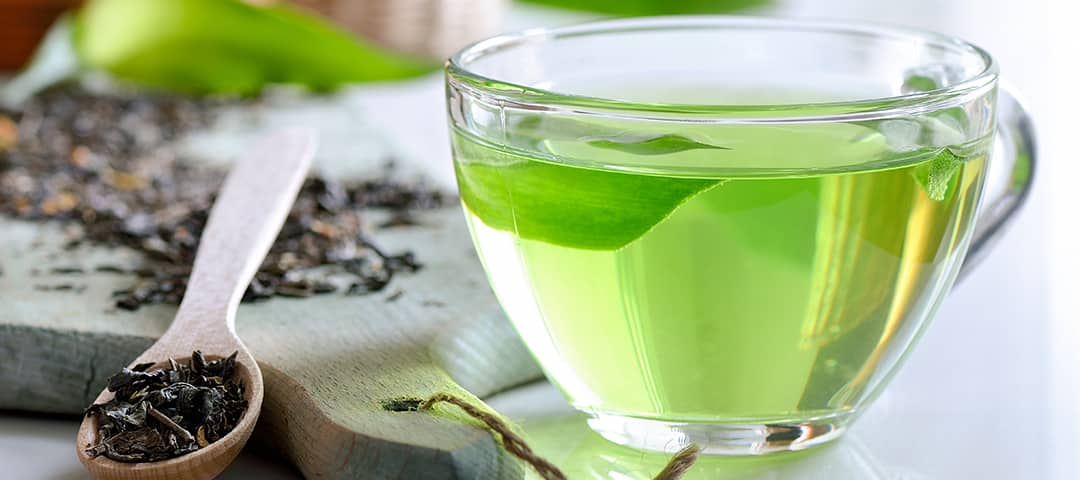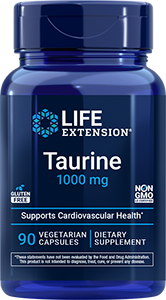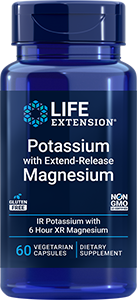
Newsletter
Newsletter
Review of Clinical Studies Finds Green Tea Protects Against Prostate Cancer

When it comes to prostate cancer, a familiar nutrient provides powerful protection. According to a systematic review and meta-analysis of 14 clinical trials, green tea catechins should be a top choice for men looking to fend off this common condition.1
The meta-analysis, which was published on May 3, 2023, in Nutrición Hospitalaria, included 14 randomized, controlled trials that compared the effects of different nutrients to a placebo among a total of 73,365 men who did not have a history of prostate cancer at the beginning of the trials. The trials evaluated the effects of several different nutrients, including green tea catechins, often in combination, on the risk of developing prostate cancer.
Why was green tea protective? Researchers Siyu Liu and colleagues of Harbin Medical University in China attributed green tea’s protective action primarily to the most plentiful catechin in green tea: epigallocatechin gallate (EGCG for short).
They observed that while the United States has the world’s highest incidence of prostate cancer, China and other Asian nations have lower incidences, which may be attributable to a greater intake of dietary antioxidants and phytochemicals. Oxidative stress caused by reactive oxygen species and decreased antioxidant enzymes that may contribute to the genetic damage involved in the development of the disease.
Products
Apply What You’ve Learned: Prostate Cancer
- With the exception of skin cancer, prostate cancer is the most common cancer in men in the U.S. Beginning in 2014, prostate cancer incidence has increased by three percent per year, with one in eight men diagnosed during their lifetimes.2 This makes prevention vitally important.
- The prostate-specific antigen (PSA) blood test screens for, but does not diagnose, prostate cancer. The American Urological Association’s guidelines recommend that “when screening for prostate cancer, clinicians should use PSA as the first screening test.”3 Higher-than-normal PSA values are followed up with further evaluation.
- While the American Urological Association recommends that health care providers offer regular prostate screening every 2 to 4 years for individuals aged 50 to 69 years of age, limiting screening to this age range may miss the many cases of prostate cancer that develop in younger or older men.2
- Nutrients that may help improve men’s chances of avoiding prostate cancer include flaxseed, cruciferous vegetables, vitamin D, soy isoflavones, green tea extract, curcumin, pomegranate, lycopene and more.4-11
References
- Siyu L et al. Nutr Hosp. 2023 May 3.
- “Key Statistics for Prostate Cancer.” American Cancer Society. 2023. https://www.cancer.org/cancer/types/prostate-cancer/about/key-statistics.html
- Wei JT et al. J Urol. 2023 Apr 25.
- Demark-Wahnefried W et al. Urology. 2004 May;63(5):900-4.
- Beaver LM et al. Toxicol Appl Pharmacol. 2012 Sep 15;263(3):345-51.
- Shui IM et al. J Natl Cancer Inst. 2012 May 2;104(9):690-9.
- Ozasa K et al. Cancer Sci. 2004 Jan;95(1):65-71.
- Bettuzzi S et al. Cancer Res. 2006 Jan 15;66(2):1234-40.
- Kunnumakkara AB et al. Cancer Lett. 2008 Oct 8;269(2):199-225.
- Sepehr KS et al. ISRN Pharm. 2012;2012:547942.
- Mihrahmadi M et al. Biomed Pharmacother. 2020 Sep;129:110459.
Featured Life Extension Magazine® Article
Relief from Menopause Symptoms
By Steve Page
Siberian rhubarb root extract has been shown to reduce common menopausal symptoms, including hot flashes, excessive sweating, sleep difficulties, physical and mental exhaustion, depressed mood, heart discomfort, irritability, anxiety, muscle and joint discomfort, sexual difficulties, bladder problems and vaginal dryness. Furthermore, studies have found no significant side effects associated with its use, such as changes in breast or endometrial tissue.
These findings are a boon for women during menopause, who often endure years of uncomfortable and sometimes distressing symptoms.
Read Full Article
What's Hot
Health Concern
Improved Prostate Cancer Survival Found Among Men Who Used Zinc
A study reported on December 1, 2022, in the Journal of Urology found a lower risk of mortality from prostate cancer or any cause among men who took zinc.

Prostate Cancer Prevention
In clinical trials, pomegranate and green tea have been shown to reduce levels of PSA, a marker reflective of prostate cancer progression.
Related Life Extension Magazine® Articles

Cancer-Fighting Impact of Black Tea
Preclinical data show that black tea theaflavins block cancer development and progression. Human studies are urgently needed to evaluate these findings in the clinical setting.

Nutrients That Help Prevent Prostate Cancer
A 2021 study found that certain foods exert protective effects against prostate cancer.
Highlight
LE Live
Join Life Extension’s Dr. Mike and Dr. Crystal live each week as they answer fan questions about the latest health trends.
Learn MoreLife Extension Magazine® Issue Now Online
A remarkable number of healthy-longevity findings have been published over the past 18 months.





